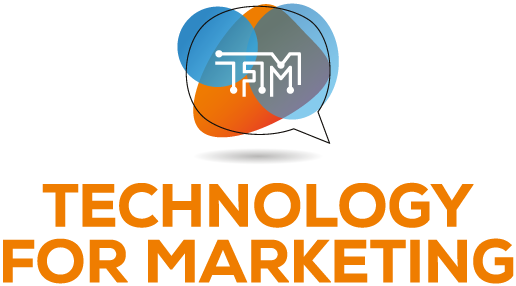Heineken's Patrick Zinga on data-driven marketing and life-centric segmentation
)
Patrick Zinga, with 14 years of experience in advertising and marketing, shares insights from his journey from data analytics to leading Heineken's digital activation team. Learn about his strategies for leveraging data, enhancing consumer experiences, and adapting to evolving marketing trends.
Patrick's career journey and advice
Tell us about your career so far and the essential turning points that got you where you are today.
My name is Patrick Zinga, and I have 14 years of experience in advertising and marketing. I began my career in data analytics at Mindshare, part of Group M, working on Unilever. I transitioned into digital activation, focusing on digital display and later programmatic activation, social, and influencer marketing.
After a decade in ad agencies, I moved into consultancy roles before taking on my current in-house position at Heineken. Here, I manage the digital activation team across search, social, performance marketing, influencer, and programmatic activation. I also oversee Martech solutions, first-party data acquisition, and enhancing consumer experiences to drive brand love.
Curiosity has been a key driver in my career. My background in data analytics has been invaluable, as understanding data is crucial to understanding people and human behavior. This anthropological interest in human behavior keeps me continuously curious and engaged in my work.
Looking back at your career, what advice would you give your 20-year-old self?
The first thing would be to spend less and save more (laughs)! And then from a career perspective, I've been fortunate to have the right opportunities come my way at the right times. I would advise my younger self to always follow their intuition and leave a job when they are happy and comfortable, as this is the best time to move on without burning bridges. Additionally, it's crucial to always be learning and developing. Also, be more selfish about setting time aside for personal and professional growth. Finally, always aim to leave workplaces on good terms to maintain positive relationships and future opportunities.
Patrick's session at Technology for Marketing
Could you tell us more about your session at Technology for Marketing titled "Putting Data at the Heart of your Marketing Activation: Understanding Changing Consumer Landscapes"?
In my session, I'll discuss the essential role of data in digital marketing. You can't effectively activate marketing strategies without data-driven insights into audience behaviours. I'll share my journey from merely presenting data to extracting actionable insights. Attendees will learn to interpret large datasets and gain a competitive edge by understanding their audiences better. Come with curiosity and an open mind to discover new ways to leverage data in your marketing efforts.
Don't miss out on Patrick's session at Technology for Marketing 2024!
Data-driven marketing, life-centric segmentation and emerging trends
Could you elaborate on the types of data that are most important when studying evolving consumer behaviours, especially when transitioning from traditional demographics to life-centric segmentation?
When studying evolving consumer behaviours, having a diverse range of data is crucial. Behavioural data, online consumption data, and other types all offer valuable insights. Partnerships are vital in this data-driven world, as they provide the breadth and depth of data needed to understand consumer behaviour comprehensively.
The most critical type of data for understanding consumer behaviour is consumption data. It's essential to understand the behaviours of those already consuming within your category, not just your specific product. This involves analysing why people don't purchase your product, why they choose competitors, and what barriers exist. By understanding these factors, you can improve the consumer experience and address the functional needs of your product compared to competitors.
The biggest insights often come from understanding the behaviours of non-customers within your category. This knowledge helps identify and remove the barriers preventing them from choosing your brand, thus driving growth and increasing market share.
Do you have any examples of life-centric segmentation implemented at Heineken?
Yes, we've focused on first-party data acquisition, especially with the decline of third-party cookies. By segmenting our audience, such as pasta lovers versus pizza lovers, we've increased engagement by over 30%. Tailored content based on consumer preferences helps us deliver better business results and stronger brand engagement.
So you have two segmented databases, one for pasta lovers and one for pizza lovers?
Yes, exactly. These segments receive different types of content based on their engagement. We focus on those who engage less with our brand. Targeting loyal customers repeatedly yields consistent results, but the real growth potential lies with low-engagement consumers. By encouraging them to purchase more products, we can scale and increase revenue.
When you first joined Heineken, how did you go about dissecting the brand and really understanding it at a granular level?
Understanding the brand at a granular level, especially with 26 brands in the UK market, is challenging. The best approach is to hear directly from customers. When I started, I visited bars and pubs, speaking with bar managers and consumers. We have an internal initiative called Consumer Connect, which allows us to interact with consumers outside London. This helps us avoid the London bubble and gain diverse perspectives.
By having one-on-one conversations with people consuming our products, we gather valuable insights. These direct interactions provide deep-rooted insights that can significantly inform our marketing strategies and activations.
What technology or tools do you find most effective when it comes to analysing and utilising data?
Dashboarding tools like Power BI are crucial for analysing and utilising data efficiently. They create easy-to-read, adjustable dashboards tailored to different stakeholders. Identifying key KPIs first ensures these dashboards drive growth. A Customer Data Platform (CDP) helps segment first-party data for targeted marketing. Dynamic Content Optimisation (DCO) platforms further enhance efficiency by personalising content delivery.
Based on your experience, what are some emerging trends that you foresee in the next five years for marketers?
- Consumer Experience: Focus will shift to improving every touchpoint with the consumer, ensuring brand consistency and meaningful engagement.
- Data Privacy: As consumers become more data-savvy, brands must offer clear value in exchange for their data, maintaining transparency and trust.
- Technological Advancements: Growth in connected TV and digital out-of-home advertising will drive higher quality and innovative marketing efforts.
- Creativity: The importance of creativity will rise, especially with AI's role in content creation, balancing data-driven strategies with engaging, innovative content.
Quick-fire questions
What is your biggest pet peeve as a customer?
Slow service. In the digital age, delays are frustrating and can make me switch to faster brands like Amazon over eBay.
What is your favourite social media platform?
Instagram. It offers a good mix of what Facebook used to be and elements of TikTok, without the overwhelming content.
Where would you segment yourself in your current database at Heineken?
I would segment myself in the "Lono" category, which includes individuals who are decreasing their alcohol consumption and seeking alternatives. I prefer low or non-alcoholic options as I try to maintain a healthier lifestyle.
What is your proudest moment in your career so far?
My proudest moment was working on a Lynx campaign for Unilever, collaborating with Buzz Aldrin. The campaign aimed to send a regular person to space, and we reached 86% of the UK. It was one of my first solo projects, and seeing friends and family impressed by the campaign made me proud of my work.
Latest News
-
Kat Worley on Optimising the Online Experience
26 Nov 2025Ecommerce manager Kat Worley shares how data, creativity, and customer-centric thinking shape impactful digital experiences, reflecting on career lessons, platform insights, and the innovations transf ... -
Top 100 Marketing Influencers — 2025 Ranked List
30 Sept 2025Discover the Top 100 Marketing Influencers of 2025. The visionaries, innovators, and disruptors shaping digital, brand, content, social, and growth marketing, driving conversations and redefining indu ... -
Meet some of the team behind eCommerce Expo and Technology for Marketing. From planning highlights to industry trends, discover how they shape the UK’s biggest retail and marketing events.
-
Grace Miller reveals how “failing smarter” transforms experimentation into growth. From lessons learned to advice for future innovators, she explains why embracing failure is the key to progress in eC ...
-
How Temu Helped This UK Manufacturer Increase Sales and Create Jobs
26 Aug 2025 TemuFacing rising costs and shrinking sales channels, Nova Tissue turned to Temu. The platform rapidly boosted sales, safeguarded margins, and created UK jobs—transforming e-commerce into a major growth d ... -
Michelle Hurney on Personalised & Powerful: Driving Retention Through Smart CRM
20 Aug 2025 Phoebe Dunsmore, Marketing ExecutiveMichelle Hurney, Head of CRM at Wonderskin, explores career lessons, customer engagement, and how data, empathy, and AI shape the future of retention-focused marketing. -
The Rise of Influencer Accountability: Misrepresentation, Fines, and Evolving With The Industry
20 Aug 2025 RightlanderIn today’s digital economy, high-profile social media influencers wield significant power over consumer behaviour. However, with great influence comes great responsibility. From Italy to the UK and be ... -
Top 100 Marketing Influencers — 2025 Shortlist
15 Aug 2025Meet the Top 100 Marketing Influencers Shortlist of 2025. The innovators, disruptors, and rising stars leading the way in marketing. This year’s ranking is still under wraps, and the countdown begins ... -
Safeguarding Brand Reputation with Automated Compliance Tools: Why AI Alone Doesn’t Cut It
30 Jul 2025 RightlanderAutomated compliance tools are essential for brand protection. This article explores their strengths, the risks of relying solely on AI, and why a hybrid approach ensures compliance and consistency.

)
)
)
)
)
)
)
)
)
)
)
)

)
)
)
)
)
)
)
)
)
)
)
)
)
)
)
)
)
)
)
)
)
)
)
)
)